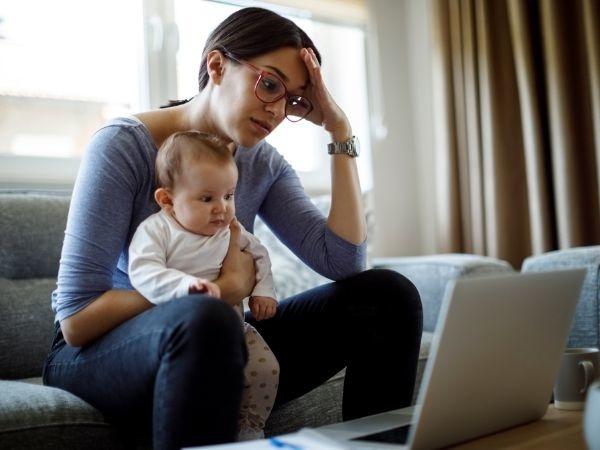I’ve always wanted to be a mother. It probably stemmed from the fact I had no younger siblings or cousins, and always craved the caretaking role. I planned to have a child while in my 20s, owing to the fact that I suffer from PCOS and didn’t want that to reduce my chances of having a baby. Thankfully, I found a partner who shared the same goals I had, and by 28 I was pregnant. I read all the parenting books, but nothing in the world prepared me for postpartum depression.

Photo credit: iStock
My experience with postpartum depression
I had a vaginal birth, (let’s stop using the term ‘normal delivery’ please cos all births are normal), and my recovery was a lot faster. But nothing can prepare you for life with a baby. From figuring out breastfeeding, postpartum bleeding and sleepless nights, I found myself resenting my new life. It was a continuous cycle of feeding, burping, diaper changes and putting the baby down to sleep. I would scroll my Instagram feed and I would see my friends live their best lives, going out for drinks, partying. The mom bloggers I followed had perfectly curated feeds with babies in cute rompers and chalkboard announcements. My life did not look like that.

Photo credit: iStock
My mom did tell me that I would be facing something called “baby blues”, and that my hormones would be in a flux. This was made worse by the fact that I had to adhere to the Indian tradition of being housebound for the first 40 days; it made me go stir crazy. I found myself feeling very lonely, I had huge bouts of crying and couldn’t understand why I was resenting my husband going to work. Little did I know that I had postpartum blues, and during a routine check up with my gynaec, I admitted my feelings to her. She told me I was going through postpartum depression.

Photo credit: iStock
How to identify the signs of postpartum depression
Dr Ruth Fernandez, Consultant Clinical Psychiatrist, Motherhood Hospital, Kharadi, told us about the signs to look out for. “Many new mothers tend to experience postpartum depression after the child is born. A new mother may experience a range of emotions such as mood swings, anxiety, panic attacks, crying episodes, and even inability to sleep properly. Not only this, but many women may also suffer from depression that may last for a longer period of time. This is how you must identify whether you have postpartum depression or not,” she said.
She added: “The fear that you are not a good mommy, feeling hopeless or worthless, you will be restless, may harm yourself or your baby, feel fatigued, lack of energy, inability to bond with the baby, suicidal thoughts and even frustration and irritability. If you spot all these symptoms then it is time you must seek immediate medical attention.”

Photo credit: iStock
We need to talk about postpartum depression
I didn’t have as serious a case of postpartum depression as many other mommies. Making some significant lifestyle changes made me feel better without medication. Mental health is still a hushed, taboo topic in India, and in our society where the birth of a child is celebrated, any signs of something awry are instantly hushed up and dismissed. Maternity hospitals, paediatricians and gynaecologists need to educate and inform expecting and new parents about identifying the signs of postpartum depression. Normalizing the conversation, will help new mothers feel less ashamed about seeking help or experience guilt about resenting their newborn or new life.
Photo credit: Lead: iStock, social: image courtesy Karen Alfonso



